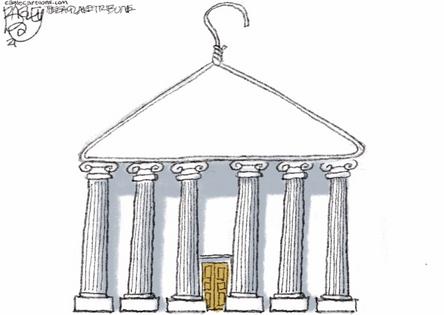What Should Happen If Abortion Returns to the States?
To say there’s a lot riding on the U.S. Supreme Court’s eventual ruling in a case challenging Mississippi’s restrictive abortion ban is a galactic understatement.
If, as currently appears the case, the court effectively topples Roe v. Wade, the 1973 precedent that declared a constitutional right to abortion, regulation of the practice would return to the states — a nightmare scenario if ever there was one.
As many as two-dozen states could move to ban abortion if the high court gives them the green light.
Experts believe some states, such as California and Pennsylvania, would become havens for people seeking reproductive care, while others would become reproductive healthcare deserts, putting the lives of millions of pregnant people at risk.
But, according to one Pennsylvania attorney, the practical realities of abortion rights reverting to the states are much more complicated and more nuanced.
In a recent op-ed published by the Legal Intelligencer, an industry trade paper, attorney Howard J. Bashman, an appellate lawyer from Montgomery County in suburban Philadelphia, argues that a decision overturning Roe and Planned Parenthood v. Casey, its 1992 adjunct, “will present numerous issues of fairness rarely encountered in the judicial process.”
If it does toss Roe, Bashman argues that the justices should confront these fairness issues “head-on” by “[decreeing] that all laws having the effect of outlawing or restricting abortion in a manner contrary to Roe and Casey that were in effect when Dobbs is decided will remain unenforceable because they were contrary to governing precedent when enacted.”
And the nation’s highest court should go one better by “[specifying] that the earliest any law having the effect of outlawing or restricting abortion in a manner contrary to Roe and Casey would be allowed to take effect is after all the legislators who voted to enact that law, and the governor of the state who signed the law, were elected to their positions after the court’s ruling in Dobbs had issued,” Bashman wrote.
So, for instance, since voters choose the entire U.S. Senate over six years, with a third of seats on the ballot every two years, the earliest that the federal government could pass a law “having the effect of outlawing or restricting abortion in a manner contrary to Roe and Casey would be in 2029.”
Under such an approach, Bashman continued, Mississippi’s existing law would be declared unconstitutional, and the state could not move on a new statute until its entire state House and Senate were re-elected after any high court ruling.
...continued
Copyright 2021 John Micek, All Rights Reserved. Credit: Cagle.com







